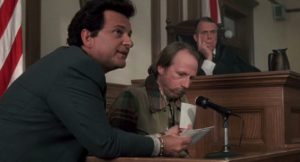
Calderon v. Home State County Mutual Insurance Company, –S .W.3d–, LEXIS _________, Cause No. 01-14-00006-CV (Tex.App.-Houston [1st Dist.] Jan. 15, 2015)-Subjective complaints of pain and suffering clearly within the province of jury to determine
Facts of the Case
Calderon was in a two car accident in which he was rear-ended by an underinsured motorist. Immediately following the accident, Plaintiff complained of shoulder, neck and leg pain; he was transported by EMS to a hospital-who noted only lower back pain and upper right leg pain. X-rays taken at the hospital immediately following the accident appeared normal, and physical exams uncovered no abnormalities or neurological deficits. He was diagnosed with back and neck pain and a bruised shoulder. His symptoms improved, and he was discharged that evening.
From November, 2010 through July, 2011, Calderon saw a series of chiropractors, doctors, and an orthopedic surgeon, Dr. Dennis, in Corpus Christi and San Antonio-even though he lived in Houston-as well as had a series of MRIs performed. Each of these medical providers and radiographic tests failed to find any nerve damage that objectively supported Calderon’s subjective description of his back, neck and leg pain. Finally, in July, 2011, he visited Dr. Rodriguez for a second opinion, who without new radiographs diagnosed a herniated lumbar disc and radiculopathy and recommended surgery.
Dr. Dennis continued to treat Calderon from April, 2012 through trial. Dennis’s continued neurological testing was negative, and he ordered Calderon to undergo a discogram before considering surgery. In June, 2013-shortly before trial-he underwent a discogram. He reported no pain at the disc identified by Rodriguez as herniated but reported pain at different discs. He also received a CT scan of his spine-the first since 2010-that revealed a degenerative disease and other issues, which Calderon agreed were different from the MRI results in 2010. At trial, he claimed his lower back and hip pain remained, although his shoulder and neck were fully improved following treatment.
Expert Testimony at Trial
Dr. Dennis was called as Plaintiff’s expert at trial. He testified that the MRI of the lower back revealed a “relatively good result” and that the protrusion identified did not affect the nerve. However, he opined that Calderon’s pain was caused by the car accident. On cross, he admitted there was no objective verification for Calderon’s pain.
The defense expert also found no neurological deficit caused by the accident that explained Calderon’s pain. Further, he opined that Calderon’s subjective pain, which shifted from the right leg to the left as time passed, as well as Rodriguez’s finding of a neurological deficit were not supported by the initial MRI.
Jury Awards No Pain and Suffering Damages
The jury awarded $19,005 for past medical expenses but awarded nothing for Calderon’s future medical expenses, pain, and mental anguish. Calderon moved for a new trial, arguing the jury’s finding was against the great weight and preponderance of the evidence.
Court Holds Subjective Complaints of Pain Alone Doesn’t Warrant Reversal
The Court held that it was “particularly within the province of the jury to set the amount of damages for pain and suffering.” The Court went on to opine that in cases where there are objective physical manifestations that would support an award of pain, a jury’s failure to award damages for pain and suffering while simultaneously awarding medical expenses is error. However, “a jury may disregard purely subjective complaints that are necessarily speculative and incapable of direct proof.”
In this case, the Court held that the objective radiographic tests and Plaintiff’s own expert’s admission that he had no objective verification for Calderon’s pain coupled with other evidence that weighed against Calderon’s credibility-such as driving from Houston to Corpus Christi and San Antonio for medical treatment while in such pain along with the relatively minor damage to his car ($3,600)-supported the jury’s findings that his ongoing debilitating pain was not caused by the car accident. Because the evidence conflicted at trial, with some evidence challenging any award for pain, the Court held it was within the jury’s province to decline to award damages for physical pain and mental anguish. Thus, the zeroing out of these elements of damages by the jury was not against the great weight and preponderance of the evidence.

